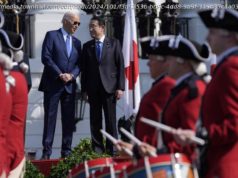Companies are lining up to sponsor Naomi Osaka. But as Japan wrestles with diversity, much of the debate has fallen on the young champ’s shoulders.
At the Kyodo Indoor Tennis School in suburban Tokyo, one kind of merchandise is flying off the shelves: anything associated with Naomi Osaka.
Since September, when she beat Serena Williams for the U. S. Open title, Ms. Osaka has been the reigning champ of women’s tennis. In Japan, the country for which she competes, she’s become a household name. Companies making everything from cars and cosmetics to instant noodles have raced for endorsement deals.
But as she catapults onto the world stage, the half-Haitian, half-Japanese star with dual citizenship in the U. S. and Japan is intensifying discussions around Japan’s own identity.
“The unwritten rule” to being Japanese, writes Baye McNeil, an African American columnist for The Japan Times, is “looking Japanese.”
Deemed one of the most homogeneous countries on earth, modern Japan has long struggled to integrate people who don’t meet traditional ideas of “Japaneseness,” often rooted in ethnic identity. With an aging and shrinking population, though, the government has decided that allowing more foreigners in is a matter of economic survival.
September was a very good month for Masao Tsutsumi.
Mr. Tsutsumi, who piloted Nissan’s sponsorship of Naomi Osaka, latched onto the young tennis star before she became a household name in Japan. When he’d first broached Ms. Osaka’s name to his team mid-2018, their response was lukewarm: “But she’s only No. 17 in the world.”
Then came September 2018. Within a week, Ms. Osaka beat Serena Williams for the U. S. Open title, jetted to Japan, and headlined a press conference at Nissan’s gleaming headquarters in Yokohama. When a Nissan executive asked about her favorite car, her response was broadcast for the world to hear: GT-R.
It was Nissan’s flagship sports car, the one that goes 0 to 60 mph in under three seconds – seemingly like the career of Ms. Osaka, who is now No. 1 for women’s singles, and the first Japanese player to achieve that ranking. A special Osaka-branded edition GT-R marketed only in Japan sold out within a month.
“My boss told me, ‘You’re a lucky guy,’” Mr. Tsutsumi says with a chuckle, basking in the glory of a corporate sponsorship purchased when the stock, as they say, was underpriced. “We came after Citizen [watches], and everyone else came after.”
Ms. Osaka has been a huge draw for brands seeking to grasp onto a rising star with appeal across cultures: Yonex sports gear, Nissin Foods, Shiseido cosmetics, and All Nippon Airways have also jumped on board. Yet, as she catapults onto the world stage, the half-Haitian, half-Japanese star’s popularity is intensifying discussions around ethnic identity and multiculturalism in a country deemed one of the most homogenous on earth.






